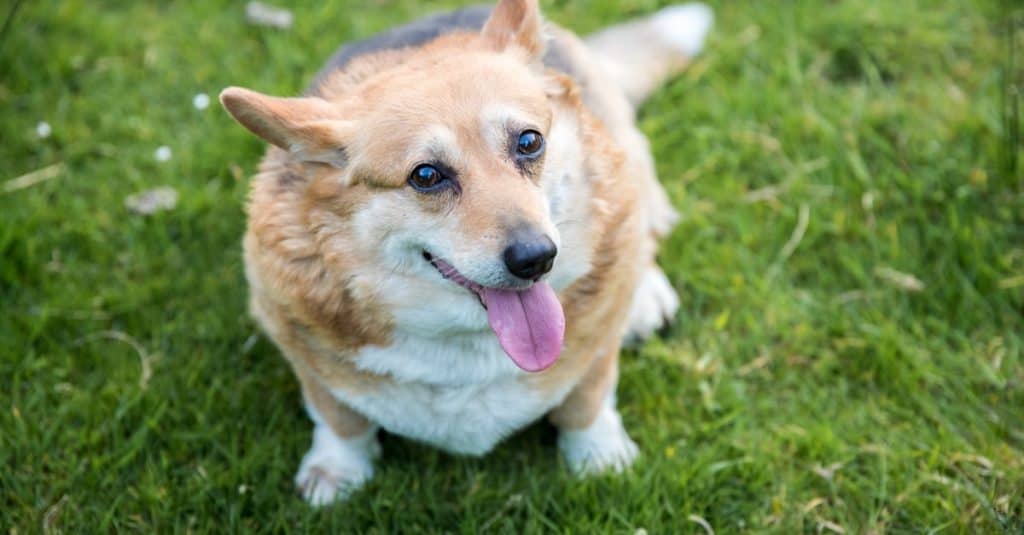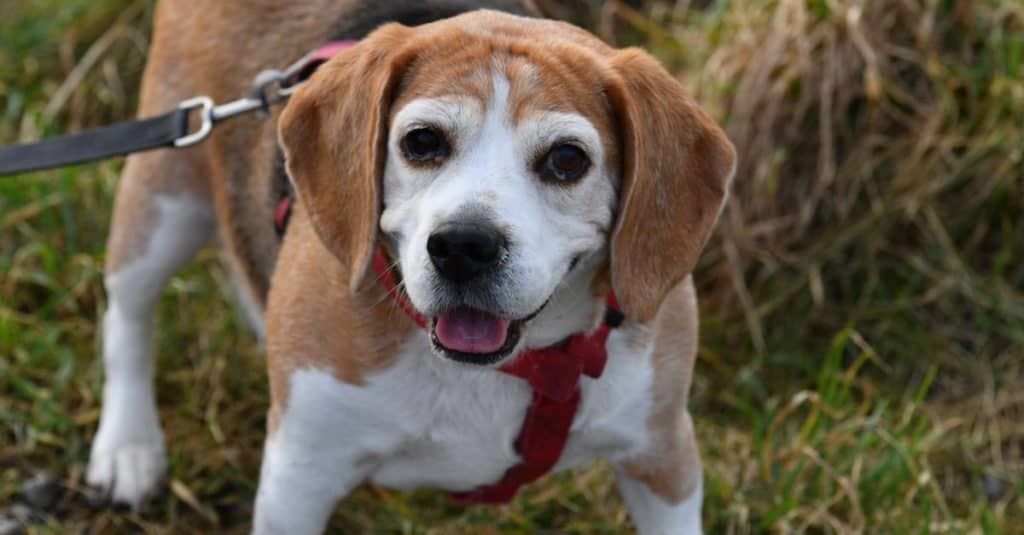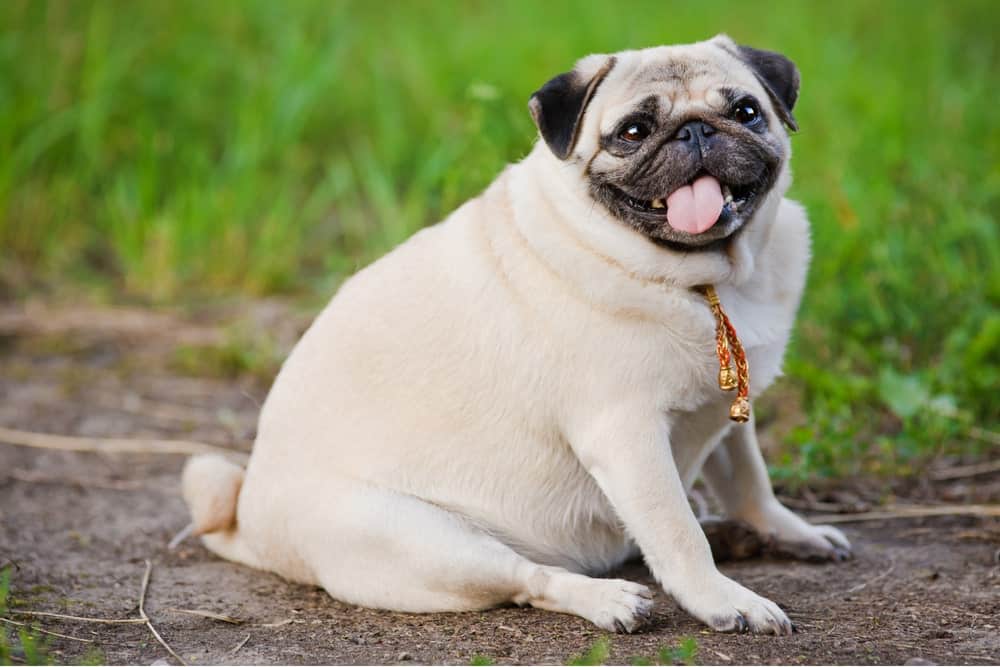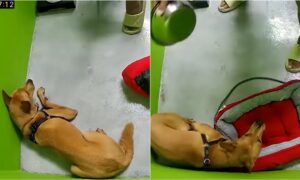“This post contains affiliate links, and I will be compensated if you make a purchase after clicking on my links.”
by Angie Hill
Did you know that obesity is a huge issue among canines all over the world? The problem is very much preventable, even though we are seeing more and more pets becoming overweight and obese each year.
Dog owners are all well aware that exercising their pooch is essential, yet figures from research conducted in 2018 by the Association for Pet Obesity Prevention show that 36.9% of dogs were deemed as being overweight, while a further 18.9% recognized as being obese. This equates to roughly 50 million dogs in a state of being overweight or obese in the U.S alone!

Is Your Dog Overweight?
In simple terms, obesity is a result of dogs taking in more calories than they burn off. Are you aware of whether your canine is obese or not?
Some simple signs that this may be the case include:
· Difficulty seeing or feeling your dog’s ribs, spine or waistline
· Sagging around the abdomen
· A larger, rounder face
· An increased reluctance to go out for walks
· Excessive panting and slower pace during walks
· Noticeable tiredness and lackadaisical behaviour
Causes of Obesity in Dogs
There are many contributing factors to obesity in dogs such as their age, sex, level of activeness, reproductive status, diet (also, how much food owners give their pets), as well as additional snacks and treats they are given. At Woof Dog, you can find the best dog foods for your pet.
Different breeds of dog can suffer more/less with obesity, which highlights how their genetics can play a role in their weight too. In fact, neutered adult dogs often weigh more than those which are unneutered, according to research.

Just as we see in humans, our four-legged friends become less active as they age. This means that they require less food for energy too; therefore, if food levels are not adjusted, weight gain is almost inevitable.
Many dog owners are guilty of throwing scraps etc., to their pets which is a major cause of overeating and subsequent weight gain.
It’s often the case that dog owners are unsure exactly how much they should be feeding their dogs at mealtimes. If their food isn’t measured and weighed accordingly this can impact their weight majorly. You can use an online calculator to work out what the correct amount of food for your dog should be.
Other causes of obesity in dogs include:
Hypothyroidism: A condition affecting the thyroid gland whereby it is unable to produce enough thyroid hormone.
Insulinoma: Fast-growing cancer cells in the pancreas that secrete excessive insulin and result in low glucose in the bloodstream.
Hypoadrenocorticism (Cushing Disease): The overproduction of cortisol.
Prevention of Obesity in Dogs
There are several ways to prevent dogs from becoming obese. We’ve outlined the most important ones for you below.
Physical Activity: Exercise is absolutely vital for the physical and mental well-being of dogs. But exercise needs to be more than just a short walk around the block, depending on your dog. Walks should be around 15 minutes per mile in pace and last for a minimum of 20 minutes in order to improve and maintain a dog’s health.
Diet: As we mentioned previously, it’s wise to stick to one type of food for your dog once they are settled with it. Aim to avoid titbits and if you do give them any treats, ensure they are factored in when weighing out your dog’s food at mealtimes.
Consult a Veterinarian: Staying in contact with your dog’s vet and taking on board their advice for weight loss/control is important. If your dog is struggling with their weight, their vet will be able to offer sound advice on how to best deal with the issue in a safe way.
Regular Weight Checks: Keeping a regular eye on your dog’s weight, including keeping a record of their weight is useful. They should typically lose in the region of 0.48kg and 1.6kg of their total weight each month, depending on the size and breed of the dog according to The Blue Cross. If they are struggling with this, then you should consult with your vet.

Treatment of Obesity in Dogs
If you find that your dog is overweight, or in more severe cases are obese, then you should take conscious steps to overcome the issue.
You can begin by doing the following:
· Changing their feeding habits
· Increasing the amount of exercise you give your pet
· Reassess the type of food they are eating and the amount you give them
· Factor in more frequent visits to the vet so you can gain access to on-going weight loss tips and free weight checks.
Further Considerations
Consider diets that are rich in protein and fiber and low in fat are often advised to achieve weight loss; this is because dogs will feel full, but are provided with increased energy levels.
Swap out standard doggy treats with carrot pieces for a healthy alternative and avoid giving them table scraps and/or leftovers.
Please remember that if at any time, you are concerned about your dog’s health, then you should consult with your vet as soon as possible.
About the Author
Hi! My name’s Angie. I’ve been writing informative and helpful guides for the last five years after deciding that my passion to help animals could help other pet owners and their pets too. My love of dogs has always been a big part of how I lead my life. When I’m not working and helping others, you’ll find me out and about walking my own pooch, after all, spending time with her is one of the most important things to me and my family!
















